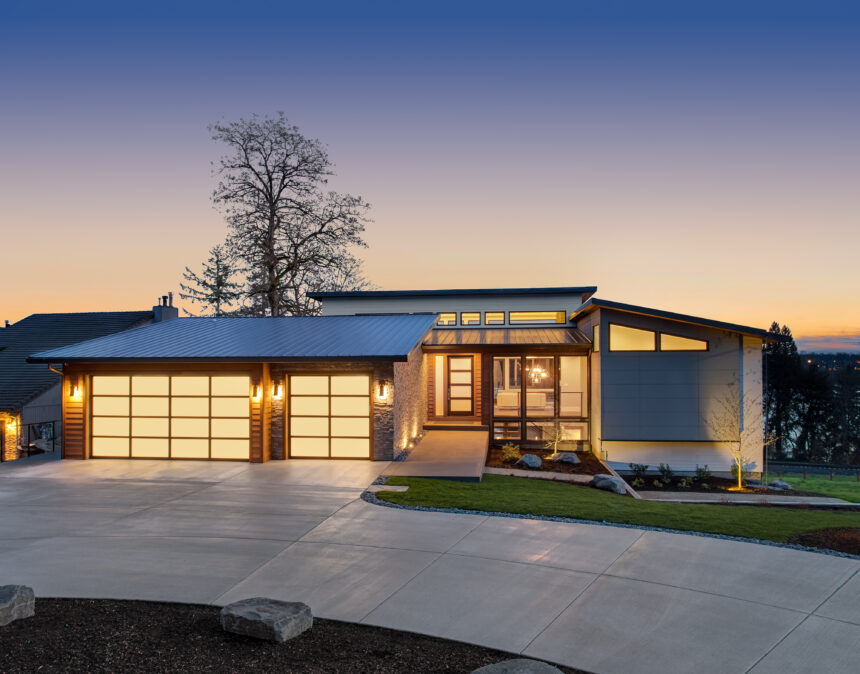Buying your first home is a HUGE deal. It is so exciting but, like anything you do for the first time, there are going to be lots of things you don’t know and at times it will probably feel a little overwhelming (or a lot). You’ll have to navigate all sorts of things from the financial aspects to the real estate market, and believe us, there’s a lot to learn. Here are seven essential tips to help first-time home buyers make informed decisions and smoothly transition into homeownership. Check out brightproperties.net for more info.
1. Assess Your Financial Health
First things first, you need to know exactly what you can afford. This includes doing things like evaluating your credit score, as this will be important for securing a mortgage. The higher your credit score, the better. A higher credit score will not only help you secure the mortgage but it could also help you get better interest rates which will save you money in the long run.
The next thing you need to do is to calculate your debt-to-income ratio (DTI). Lenders will typically use this metric to assess your ability to manage monthly payments and repay debts. A lower DTI can improve your chances of getting a mortgage.
Finally, create a budget to determine how much you can afford for a down payment and monthly mortgage payments. Don’t forget to factor in other expenses like property taxes, homeowners insurance, maintenance, and potential homeowners association (HOA) fees as you don’t want to be blindsided by these at the end of the day.
Having a rainy day fund to cover unexpected expenses is always a good idea.
2. Get Pre-Approved for a Mortgage
Getting pre-approved for a mortgage is a key step in the process of buying your home. A pre-approval letter from a lender indicates that you are a serious buyer with the financial means to purchase a home.
It also gives you a clear understanding of how much you can borrow, which helps narrow down your search for homes within your budget.
Do your research and compare mortgage rates and terms from different lenders to find the best deal. Working with a mortgage broker can be beneficial as they have access to multiple lenders and can guide you through the application process.
3. Identify Your Needs and Wants
It’s important to differentiate between what you need in a home and what you want. Needs are things that are non-negotiable such as the number of bedrooms, bathrooms, and proximity to work or schools. Wants are desirable features like a large backyard, a modern kitchen, or a swimming pool.
Make a list of your must-haves and nice-to-haves. This will help you stay focused during your search and help you make more informed decisions. Be prepared to compromise on some of your wants to stay within your budget.
4. Research Neighborhoods
The location of your new home is just as important as the home itself. Before you decide on a home, research various neighborhoods to find one that suits your lifestyle and needs. That way, when you are browsing properties you can filter for those that are in the areas you like.
When you are deciding, consider factors such as:
- Safety: Check crime rates and speak with local residents.
- Schools: Research the quality of local schools if you have children or plan to in the future.
- Amenities: Look for nearby amenities such as parks, grocery stores, restaurants, and public transportation.
- Future Development: Investigate any planned developments or zoning changes that could affect the area’s future value and livability.
If you can, spend some time in the neighborhoods you’re considering at different times of the day and week to get a true sense of the community.
5. Work with a Reputable Real Estate Agent
A knowledgeable and experienced real estate agent can be an invaluable resource for first-time home buyers, so try your best to find one that you trust and feel comfortable with.
They will be able to guide you through the entire process, from finding suitable properties to negotiating offers and handling paperwork. A good agent will have a solid understanding of the local market and can help you identify potential issues with the homes you’re considering.
When choosing an agent, ask for recommendations from friends and family, and interview multiple candidates to find one who has your best interests at heart.
6. Attend Open Houses and Schedule Showings
Once you have a good idea of what you’re looking for and have your bond or mortgage pre-approval in hand, start attending open houses and scheduling showings. This will give you a better understanding of what’s available within your budget and how different homes compare. Take notes and photos during your visits to help you remember details about each property.
Pay careful attention to the condition of the home, including the roof, foundation, windows, and major systems like plumbing and electrical. Look beyond cosmetic issues and focus on the structural integrity and potential for future improvements.
7. Get a Professional Home Inspection
A professional home inspection is a crucial step in the home-buying process. An inspector will thoroughly examine the property and identify any issues that may not be visible during a casual walkthrough. This includes checking the roof, foundation, plumbing, electrical systems, and more.
Review the inspection report carefully and discuss any significant issues with your real estate agent. Depending on the findings, you may need to negotiate repairs with the seller or reconsider your offer.
Don’t let the admin of buying your first home detract from the excitement. You need to go into it with your eyes wide open but you should also enjoy this super exciting time. These tips will help ensure that your first home purchase is a successful and rewarding experience, setting a solid foundation for your future.















